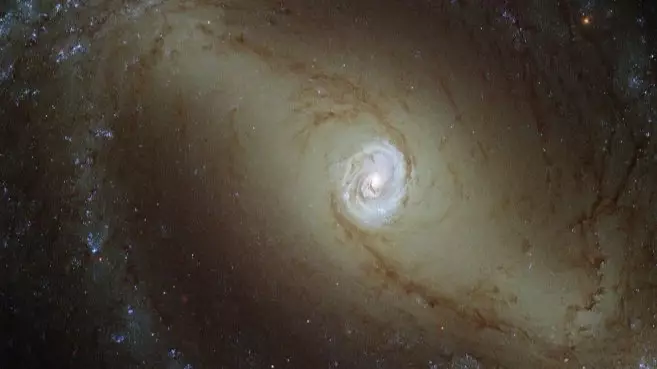
A new maths solution has put to question a long-standing theory about the nature of general relativity: the strong cosmic censorship conjecture. Stumped? So was I.
The theory goes that relativity is a deterministic theory i.e. the fate of all observers should be predictable from initial data, or, it's possible to predict the evolution of the universe by knowing its condition at a certain moment in time. Still stumped? Me as well.
In short, the new study published in Physical Review Letters focused on what happens to objects when they hit Event horizon - the surface of a black hole from which nothing is able to escape. It is basically a point of no return.
Advert
The study by Peter Hinz, a fellow at the Clay Mathematics Institute, and other researchers, found that the hypothesis wasn't valid inside what is called the Cauchy horizon, a second event horizon.
They found it was possible to cross the Cauchy horizon and get into a world where the past doesn't influence the present or future anymore.

Theoretically, if someone were to get out of one of these black holes - a tricky task - they'd be able to survive, but their past would be obliterated and an infinite number of potential futures opened up.
Advert
A principle proposed by Roger Penrose 40 years ago has long held that the physical laws of the universe don't allow for more than one possible future.
However, Hintz's mathematical calculations show that in an expanding universe (like ours), it could be possible to survive moving between a deterministic world into a non-deterministic world.
"No physicist is going to travel into a black hole and measure it. This is a math question. But from that point of view, this makes [Albert] Einstein's equations mathematically more interesting," said Hintz in a statement to Berkeley University.
Advert
"This is a question one can really only study mathematically, but it has physical, almost philosophical implications, which makes it very cool."
So although it's extremely unlikely that anyone is ever going to be able to test the calculation, it seemingly brings into question a theory that has come as close to being accepted fact as any black hole theory could.
I never thought I'd say this, but I think I need to lie down for a while and watch a few episodes of The Big Bang Theory to work my way up to understanding science again.
Featured Image Credit: PA